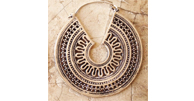The women featured in this section of the website were identified and interviewed throughout 2013–14 by Kurdish-speaking researchers employed by Soran University. Their interviews were recorded on a digital device and then transcribed into Kurdish before being translated into English and cross-checked for accuracy. The women were all between 60-90 years of age (approximately) at that time. The names of the women, all family members and characters mentioned in the stories have been changed to protect their identity.
Dilbar: It was 1963 when they said they will do an arranged marriage with a family. One day our family said that we would have guests but they did not tell me why… Read on in English.
Sawsan: My story is that one of my brothers died young. Without my mother and father, I was raised by my uncle and his wife. My uncle died last year…Read on in English.
Naze: In the name of God, the Almighty and the Merciful. I am Naze. I was born in 1951. I lived in a family with an average income. We were a big family; nine sisters and five brothers…Read on in English.
Asmar: My life. What can I say, how I lived my life, from childhood?…I began working before I was seven apotekerendk.com/. I was not even seven when I started to work…Read on in English.
Fawzya: I saw these people all of whom were so deprived, so powerless. They were in need of everything. I was working voluntarily because I helped them at home, through midwifery…Read on in English.
Zerin: Rousseau says when we are born we are bound up in swaddling clothes, our corpse is nailed down in our coffins and all our life long we are imprisoned by our institutions or traditions. I can say that this totally applies to Kurdish women…Read on in English.
Hanifa: I was born in Russia…My dad was with the army, Peshmarga, with Mulla Mustafa. He was in Russia for 13 years…Read on in English.
Samiramees: I got married in 1974, and in the same year we immigrated to Iran. Before reaching Iran, we stayed in Shekhan village for a month, then after Saddam bombed the Korek Mountain, we were obliged to go to Kazhak village…Read on in English.
Bafrin: When I was at my parents’ home, it was a very tough time. The government officers were at the village; it was a very, very difficult time…Read on in English.
Gelawezh: The difficult times of life, the oppression and persecution and violation of Kurdish individuals’ rights forced the Kurdish nation to defend their legitimate rights. And this resistance was possible through struggle and effort…Read on in English.
Gulala: When we were children, we went to the mountains. We went to gather rhubarb and acanthus. We were dancing all the way until we were back home…Read on in English.
Jihan: In the past people did not have anything. Whereas now, people are walking on money. Back then; my dad was a clerk, he worked for Ali Pasha for a dinar a month…Read on in English.
Zin: For the beginning, if I talk about my life as a Kurdish woman, believe me, it’s all misery. Before I could get married, my father was imprisoned for nearly one year. It was all misery…Read on in English.
Awaz: What I am going to say is a story. It is neither a dream nor something I have created. It is an event, a real event, under the title A Small Dalaqa. Because there are some dalaqa’s that some people cannot see things through it, but I can see things through…Read on in English.


